The totally unpredictable weather is affecting all horticultural crops, from north to southern Italy. In the province of Foggia, the cultivation of conventional and organic asparagus, as well as that of tomatoes for the industry and courgettes intended for the frozen food sector (both 20 days late), is not trending differently. On the commercial front, the situation is more favorable, for example, for conventional asparagus, and less so for organic asparagus.
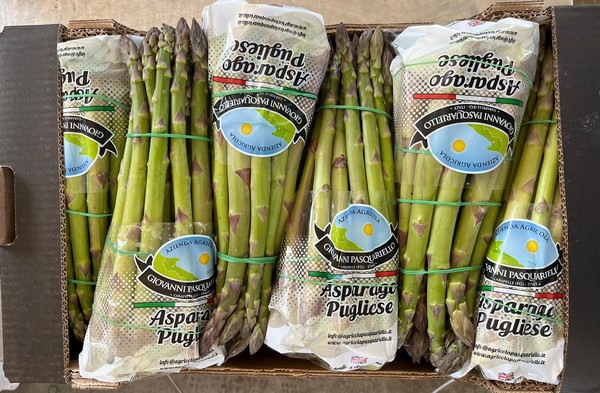
"With regard to asparagus, there are mainly two problems related to the bad weather and heavy rains," says Giovanni Pasquariello, owner of the Pasquariello Giovanni farm in Carapelle (Foggia, Italy). The first one is the split harvest. "One day you enter the fields, the next day you don't; one day you use mechanized machines, the next day you enter the fields on foot. The second inconvenience, especially for organic crops, is the management of weeds. We have never had such English-style lawns (the grower means as with ultra-fast germination, ed.) instead of asparagus. Weeds can't be fought completely. If the weather is good, you use the mulcher first, and then you use the weed whacker to finish it off, and this work is done a few times over the course of the campaign. With the rains, it's nonstop, about every 10 to 15 days."
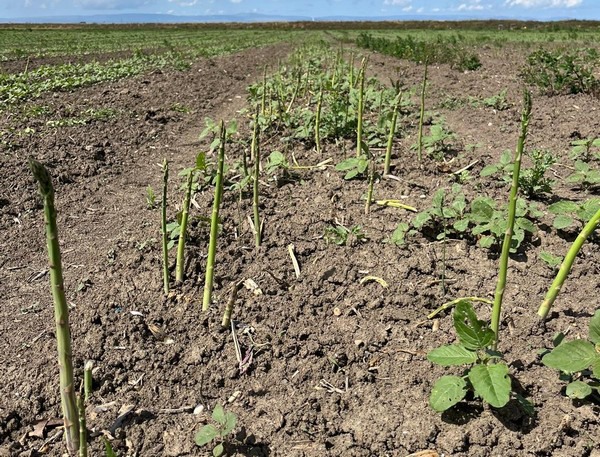
"The soils where we grow our asparagus, fortunately, drain quite well. So, we are not having quality or plant disease problems. Except in extreme cases, where the alternating deluge-sun creates the presence of rusts," stresses the producer. "The overall quantities of asparagus should be in line with last year, because if temperatures remain at seasonal levels, we will still have a ten-day or so of production."
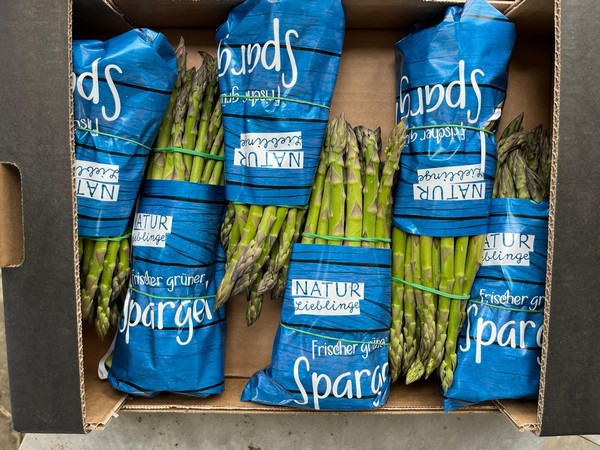
The commercial trend has been quite satisfactory for conventional asparagus, but somewhat less so for organic asparagus. "The entire season for the conventional product so far has been fair, except for a slight decrease recorded in late April-early May. However, compared to previous years, this decrease has been even more limited. Volumes have generally been lower, due to grubbing-up or to inconstant, variable weather," explains Pasquariello. "We paid the price for being in our first year of sales with regard to the organic sector. Our positioning, in fact, was not the best. We relied on a well-known Italian brand and this allowed us to work well for a while, but not during the peak of the campaign, unfortunately."
The Apulia-based company focuses exclusively on foreign markets for its asparagus, particularly Germany and Austria.
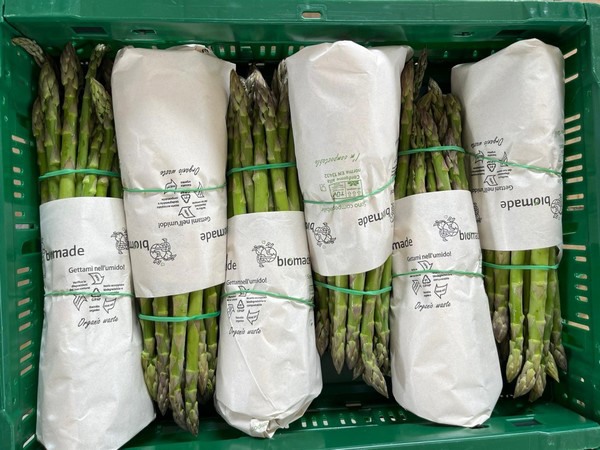
Industrial tomatoes and courgettes intended for the frozen food sector
Other products currently processed by the company are industrial tomatoes and zucchini for the frozen food sector. "With these campaigns we are about 20 days behind schedule. Once they were planted, it was impossible to get back into the fields because of the rain. We will see what is left. Because the plants are small, they are less attacked by pathogens and diseases, but waterlogging could cause them to dry out. This is what we are most concerned about now," concluded Pasquariello.
Photos provided by Giovanni Pasquariello
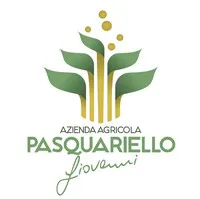 For more information:
For more information:
Giovanni Pasquariello
+39 328 9126249
Azienda Agricola Pasquariello Giovanni
C.da trionfo 1
71041 Carapelle (FG)
www.agricolapasquariello.it
